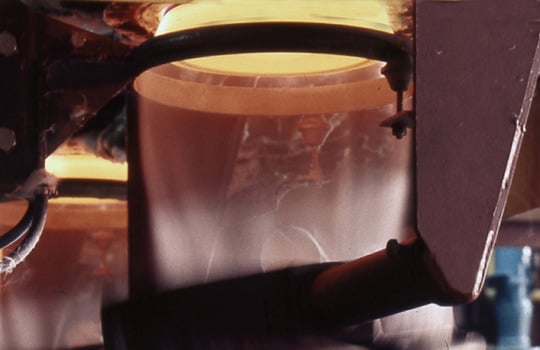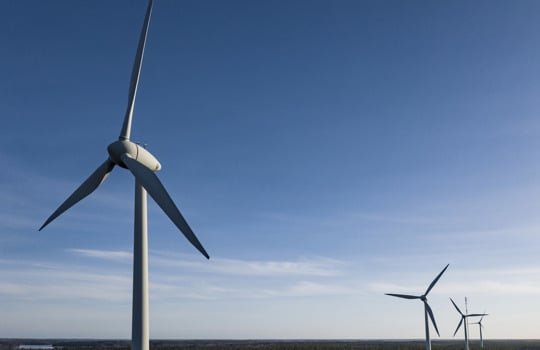Gas will be part of port services of the future
Building a gas terminal at the Port of Oxelösund, Sweden, OxGas is determined to reduce shipping emissions. The first step has already been taken, says CEO Douglas Heilborn from the Port of Oxelösund and OxGas.
We at OxGas are building a new gas terminal at the Port of Oxelösund. In the initial phase, the terminal will serve the local Special Steels Mill of SSAB by providing it with an alternative source of energy.
The blast furnaces of the SSAB mill used to be heated by coal and coke. Following a transition from them to electric furnaces, new energy sources will be needed for other processes, such as the rolling mill.
The first phase will include the completion of a smaller 500 cbm container. Gasum will provide us with a turnkey package including the gas container as well as continuous gas deliveries. In the second phase, we will construct a 30,000 cbm energy terminal that could also deliver natural gas and biogas to the Borlänge Mill of SSAB and to other customers.
Planning a full-service LNG port
At the Port of Oxelösund, we are investing in an extensive service in cargo handling and transport services, and we are continuously expanding our service supply. We want to offer all of the port services that customers may need. Gas is part of this service. That is why the plan is also to expand into the bunkering of liquefied gas.
More environmentally friendly energy alternatives are a great advantage for the port. It may help maritime transport services compete with rail or road transport in continental European transport.
The plan is to start the bunkering of liquefied gas in 2022 or early 2023.
Gas is the shipping fuel of the future
Liquefied natural gas (LNG) plays a major role as a maritime transport fuel over the transition period, enabling an easy further switch to biogas.
LNG would currently appear to be the most popular fuel for new vessels. We believe it is the right choice for the future.
Shipping must bear its responsibility by phasing out heavy fuel oils and marine diesel. There has already been a shift in the Baltic Sea towards less harmful fuels, but there is still plenty of room for improvement, particularly regarding emissions of fine particulate matter and nitrogen oxides.
Towards a carbon-neutral port
We also seek to reduce our own emissions. We have already switched our forklifts, hoists and other machinery from fossil fuels to renewable diesel.
In the big picture, we are following SSAB’s example as they are transitioning into fossil-free steel production. As a service provider, we find it important to join them at the forefront in environmental aspects.



